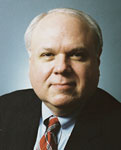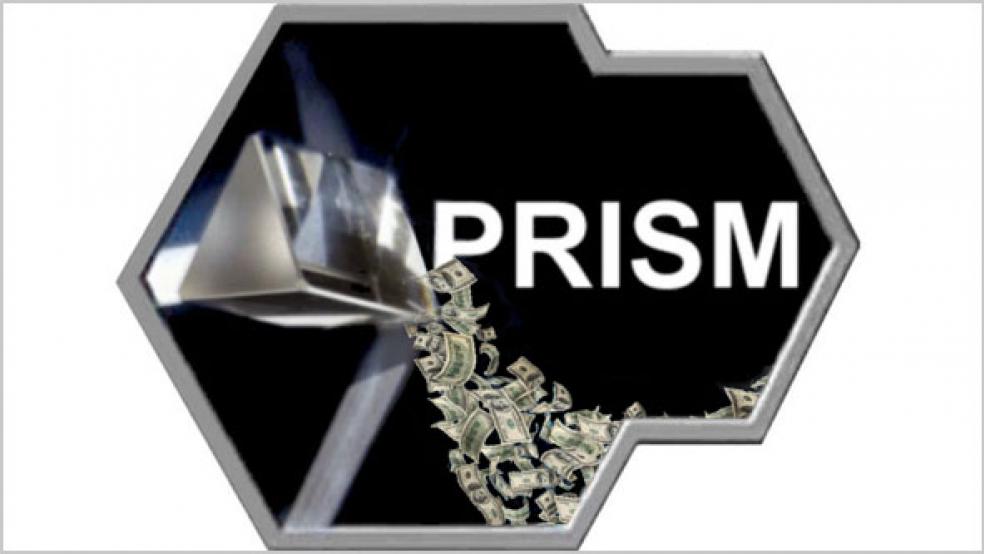Ever since former CIA employee Edward Snowden leaked information about the top secret PRISM program – a government system for monitoring vast amounts of electronic data – people have been asking what, exactly, the government does with all that data.

The paranoid imagine that government eavesdroppers are listening in on their phone conversations and reading their intimate emails. Government officials assert that the system is used exclusively to fight terrorism, with a number of important successes. But given the vastness of the PRISM system and the large number of people with access to it, it’s reasonable to assume that much more than just fighting terrorism is going on.
Back in 2000, it was revealed that Britain, the U.S., Canada, Australia and New Zealand had established a joint intelligence gathering system called Echelon which searched for keywords in faxes, telexes and emails. There were strong suspicions in Europe that Echelon was being used to help American companies compete against those based in Europe.
It is not known what relationship there may be between PRISM and Echelon, but it is plausible to assume that PRISM is an extension of Echelon. If so, it increases the likelihood that PRISM has an economic component and is not limited to antiterrorism efforts.
ECONOMIC ESPIONAGE
The possibility that PRISM is being used for economic espionage was hinted at by Snowden in a little-noticed statement to The Guardian newspaper, which broke the PRISM story on June 9. It its initial report, it said this about Snowden:
He described as formative an incident in which he claimed CIA operatives were attempting to recruit a Swiss banker to obtain secret banking information. Snowden said they achieved this by purposely getting the banker drunk and encouraging him to drive home in his car. When the banker was arrested for drunk driving, the undercover agent seeking to befriend him offered to help, and a bond was formed that led to successful recruitment.
Of course, it’s possible that the CIA suspected this Swiss banker of being the conduit for terrorist financing, but that is very unlikely. There are many illegal activities that secretive Swiss banks will happily accommodate, such as tax evasion, but they draw the line at facilitating terrorism.
It is much more likely that the CIA was after information that would fall more into the category of economic espionage, which would include efforts to get secret information on Americans and U.S.-based corporations engaging in tax evasion. This is an area where the U.S. and Switzerland have been at loggerheads for years.
But economic espionage may encompass far more. It is a murky area of intelligence and counterintelligence that has grown significantly over the last 20 years as both businesses and governments seek trade secrets and commercial information through computer hacking.
It is not known how much of this goes on because the victims may not be aware of it. Moreover, when businesses are aware, they are loathe to make the information public lest its customers and clients quickly go to their competitors. Who would keep their money in a bank known to have had its computers hacked?
TRADE SECRETS
Of course, one legitimate interest security officials may have in the area of economic espionage would be fending off foreign efforts to steal American trade secrets. China has long been suspected of having engaged in major efforts to steal technology from the U.S. There are documented cases in which Americans have been convicted of this. For example, a former Boeing engineer went to jail in 2009 for stealing data from Boeing for China.
The theft of technology that may have military application is clearly unacceptable. But there is a much grayer area of economic espionage that may cross the line. That would be when U.S. intelligence officials help American companies get contracts and make profits at the expense of businesses with headquarters in countries generally viewed as allies.
Two years ago, The New York Times reported that U.S. government officials routinely use their positions to aid American companies in getting foreign contracts. While the article did not mention the sharing of secret intelligence from programs such as PRISM, it did name officials at the State Department who undoubtedly had access to such intelligence. It would be naïve to think that their actions were not informed by it.
In 1997, Congress enacted the Economic Espionage Act to make the theft of trade secrets from businesses a federal crime. However, many members of Congress believe that it does not go far enough in an era when computer hacking and satellite imaging has largely replaced James Bond.
A year ago, the House Committee on Homeland Security held a hearing on economic espionage and on May 16 of this year the House Committee on Science, Space, and Technology did also. In each case, the witnesses emphasized that the law and existing cyber-security methods are inadequate to guard against foreign threats.
On June 6, Sen. Ron Johnson, Republican of Wisconsin, and Rep. Mike Rogers, Republican from Michigan, introduced companion legislation (S. 1111, H.R. 2281) to improve cyber economic security. Last month, Sen. Carl Levin, Democrat of Michigan, also introduced legislation (S. 884) to deter economic espionage in cyberspace.
While legislation may help the fight against economic espionage from abroad, most of what needs to be done is for private firms to be more aware of the threat. The federal government’s Office of National Counterintelligence Executive has been issuing reports for some years calling attention to the threat of economic espionage and how businesses can better protect their valuable trade secrets.
If, however, it turns out that U.S. intelligence officials have been engaging in the same activity that we berate foreigners for doing, our moral authority in this area will be greatly diminished and efforts to enlist allies in the fight against economic espionage will fall on deaf ears.






